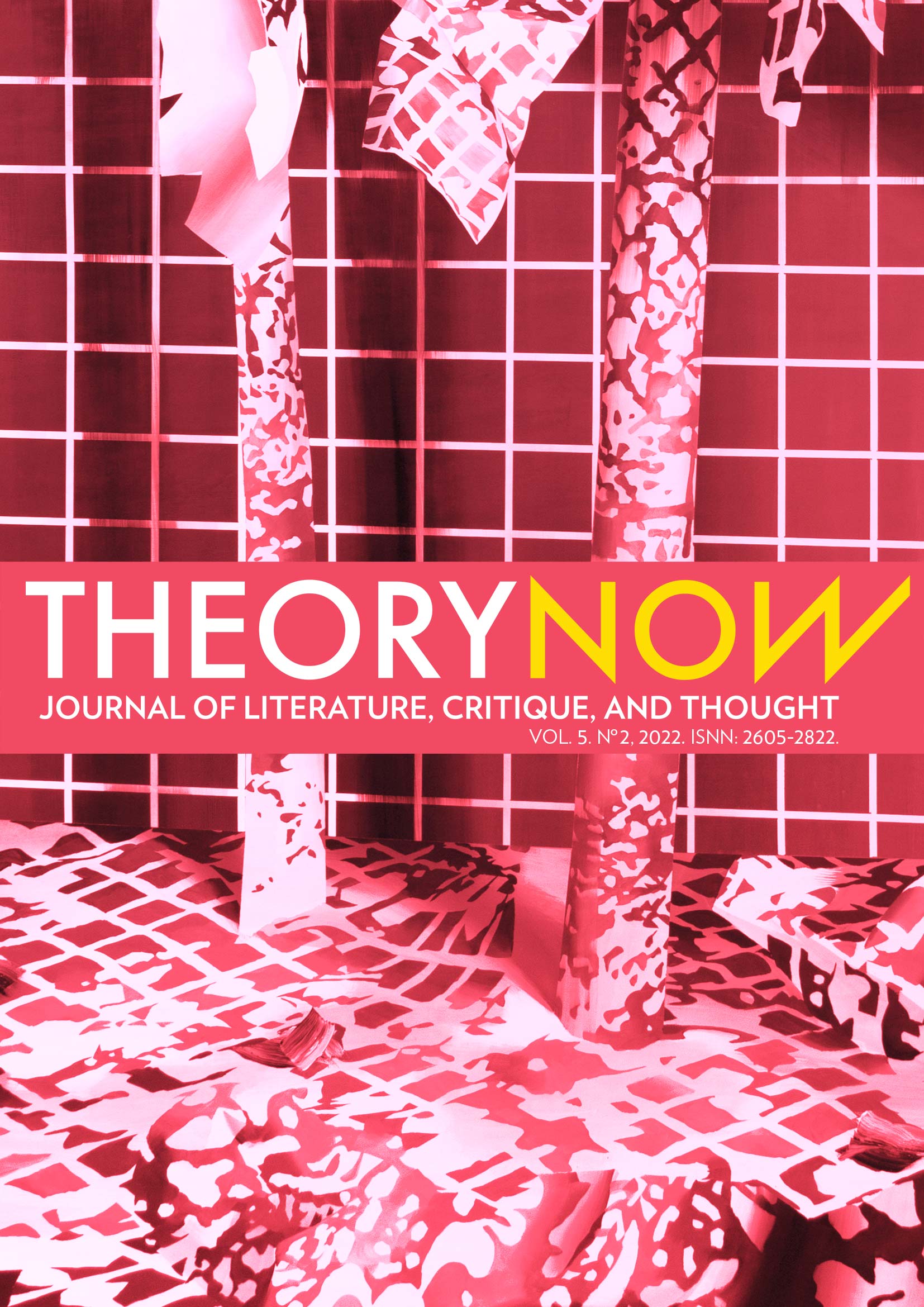La Divina Comedia de Terry Eagleton
DOI:
https://doi.org/10.30827/tn.v5i2.24633Palabras clave:
Comedia, religión, cuerpo, sufrimiento, políticaResumen
Este ensayo reflexiona acerca de los vínculos entre la comedia y la religión en los escritos de Terry Eagleton desde el año 2000 y plantea que el pensamiento reli- gioso provee el mismo tipo de ocasión e imperativo para tomarse la comedia en serio que la teoría marxista había brindado previamente a la carrera profesional de Eagle- ton. En este artículo argumentamos que el principio de conexión entre el marxismo, el catolicismo, la crítica y la comedia es el cuerpo, especialmente en su conjunción de absurdo y abajamiento. Sugerimos que la mejor manera de considerar la comedia es como puesta en escena de la fantasía de la omnipotencia cognitiva o como voluntad abstracta de disfrute en constante búsqueda de ocasiones. Por lo tanto, es probable que bromeemos por la misma razón que rezamos: por el placer de creernos más importantes de lo que somos. Esto incluye la grata posibilidad de vernos caer de la escalera, lo cual podría ser considerado una traducción bufonesca de la felix culpa o caída afortunada. Si la comedia crítica de Eagleton se presenta oficialmente como un anticipo salutífero del placer de la redención, sus gratificaciones parecen encontrarse siempre también allá donde empiezan todas las escaleras: en el sufrimiento y la finitud.
Descargas
Citas
Anselm, St. St. Anselm’s Proslogion: With A Reply on Behalf of the Fool by Gaunilo and The Author’s Reply to Gaunilo, translated and edited by M. J. Charlesworth. Notre Dame, University of Notre Dame Press, 1979.
Beckett, Samuel. Three Novels: Molloy, Malone Dies, The Unnamable. New York, Grove Press, 1959.
____. Collected Shorter Prose 1945-1980. London, John Calder, 1984.
____. Complete Dramatic Works. London, Faber and Faber, 1990.
____. Murphy, edited by J.C.C. Mays. London, Faber and Faber, 2009.
Connor, Steven. “Art, Criticism and Laughter: Terry Eagleton on Aesthetics”. Steven Connor, 1998, http://stevenconnor.com/artlaugh.html.
____. “Ludicrous Inbodiment”. Steven Connor, 7th April 2017, http://stevenconnor.com/inbodiment.html.
Critchley, Simon. On Humour. London and New York, Routledge, 2002.
Eagleton, Terry. Sweet Violence: The Idea of the Tragic. Malden MA and Oxford, Blackwell, 2002.
____. Holy Terror. Oxford, Oxford University Press, 2005.
____. Reason, Faith and Revolution: Reflections on the God Debate. New Haven and London, Yale University Press, 2009.
____. On Evil. New Haven and London, Yale University Press, 2010.
____. Culture and the Death of God. New Haven, Yale University Press, 2014.
____. Radical Sacrifice. New Haven and London, Yale University Press, 2018.
____. Humour. New Haven and London, Yale University Press, 2019.
Freud, Sigmund. The Standard Edition of the Complete Psychological Works of Sigmund Freud. 24 vols, translated and edited by James Strachey et al. London, Hogarth Press, 1953-74.
Herbert, George. The Complete English Poems. John Tobin (ed.), London, Penguin, 1991.
Hobbes, Thomas. The English Works of Thomas Hobbes of Malmesbury. Vol. IV. Sir William Molesworth (ed.). London, John Bohn, 1840.
____. Leviathan: A Critical Edition, edited by Sir William Molesworth. 2 Vols. London, Continuum, 2005.
Jerrold, Walter(ed.). The Big Book of Nursery Rhymes. London, Blackie and Son, 1920. Lewis, Wyndham. The Complete Wild Body, Bernard Lafourcade (ed). Santa Barbara, Black Sparrow Press, 1982.
MacLeish, Archibald. Collected Poems. Boston, Houghton Mifflin, 1952.
Medawar, P.B. “VI.- Critical Notice. The Phenomenon of Man by Pierre Teilhard de Char- din”. Mind, vol. 70, 1961, pp. 99–106.
Moffatt, James. “Aristotle and Tertullian”. Journal of Theological Studies, vol. 17, 1916, pp. 170-171.
Tertullian (Quintus Septimius Florens Tertullianus). Tertullian’s Treatise on the Incarnation, translated and edited by Ernest Evans. London, SPCK, 1956.
Descargas
Publicado
Cómo citar
Número
Sección
Licencia
Theory Now Journal of Literature, Critique, and Thought es una publicación de acceso abierto e inmediato totalmente gratuita, tanto para lectorxs como para autorxs. Lxs autorxs no pagan ningún tipo de tasa por el proceso editorial de sus artículos. Permitimos la lectura, descarga, copia, distribución, impresión, búsqueda, enlace o reutilización con fines no comerciales de todos los trabajos publicados, siempre que se citen la autoría, la revista y el órgano editor. Todo material intelectual publicado en esta revista se encuentra protegido con una licencia de Creative Commons Reconocimiento-NoComercial .
Recomendamos encarecidamente la difusión de los artículos en redes sociales (Facebook, Twitter, LinkedIn, etc.) y científicas (ResearchGate, Academia.edu, etc.), repositorios institucionales universitarios y otros repositorios públicos, blogs y webs personales o institucionales, Google Scholar, ORCID, ResearchID, ScopusID, etc. En cualquier caso, la propiedad intelectual de los artículos y los posibles derechos económicos derivados de ellos son exclusivamente de sus autores.














